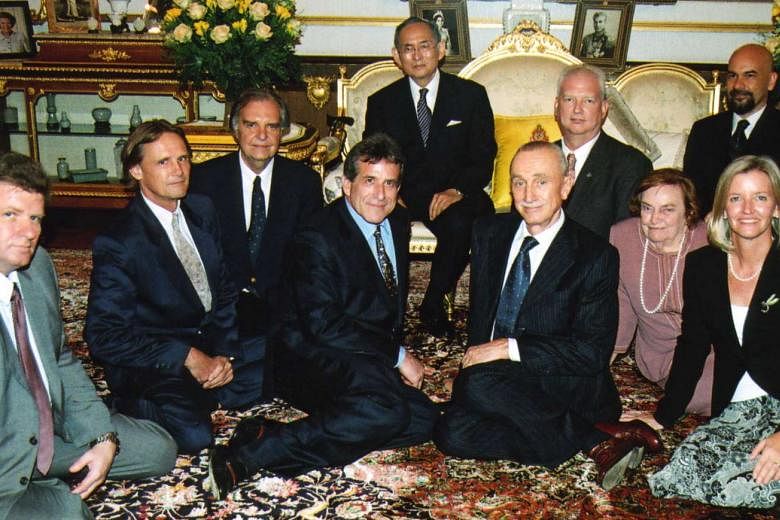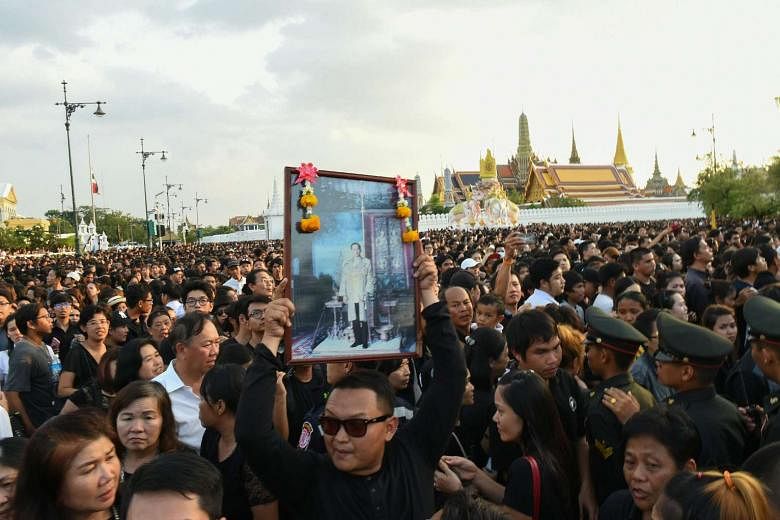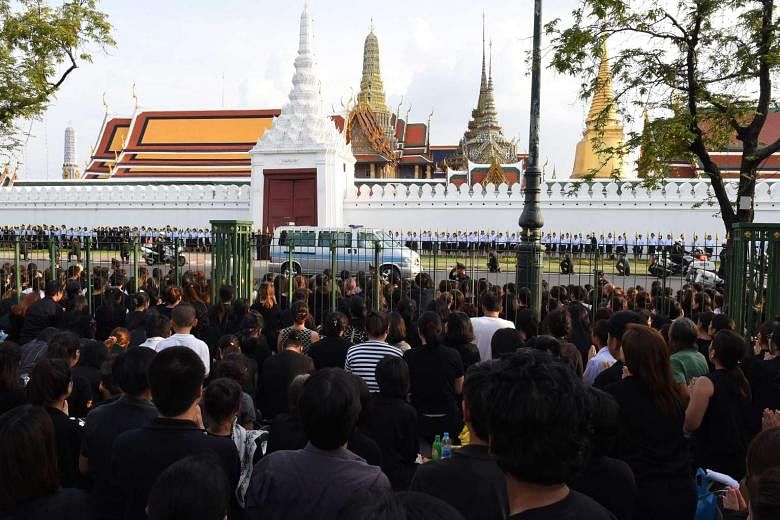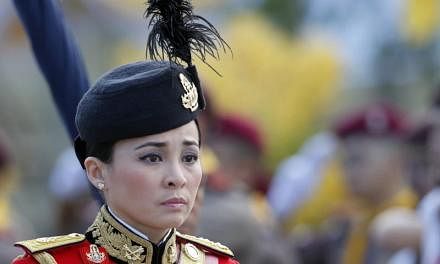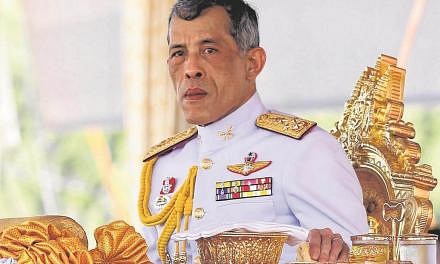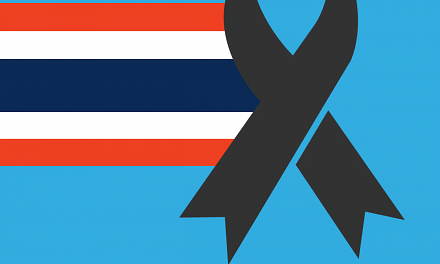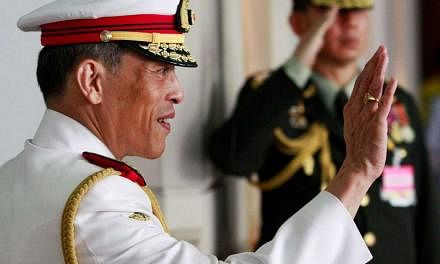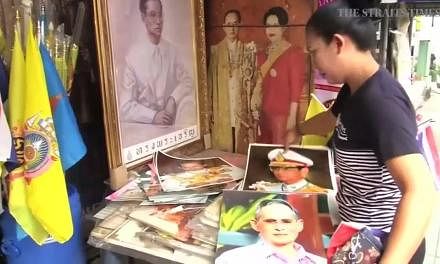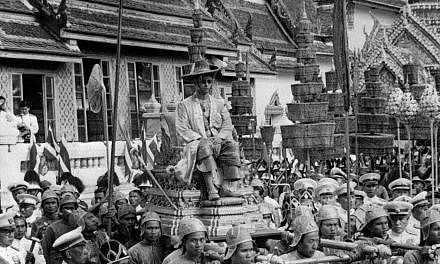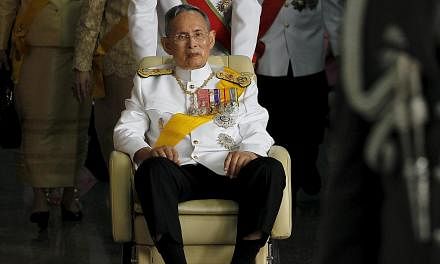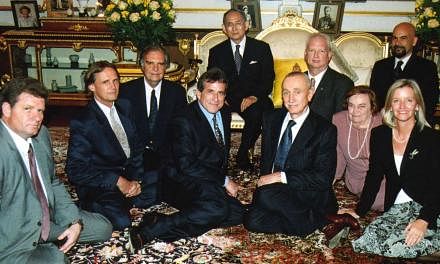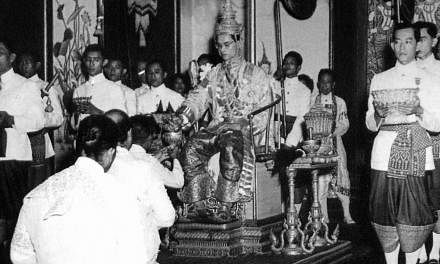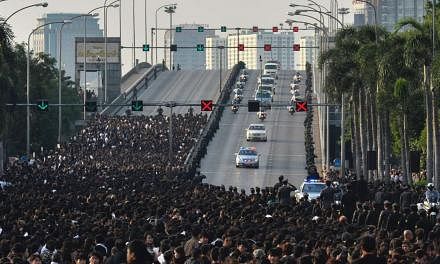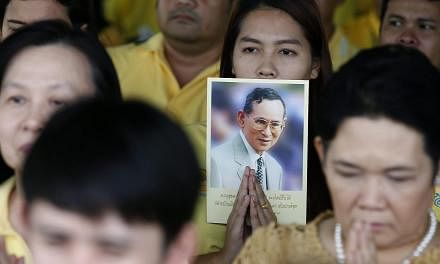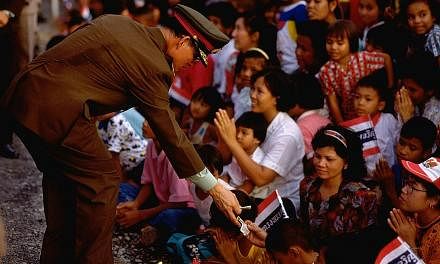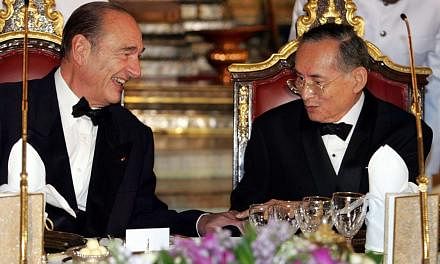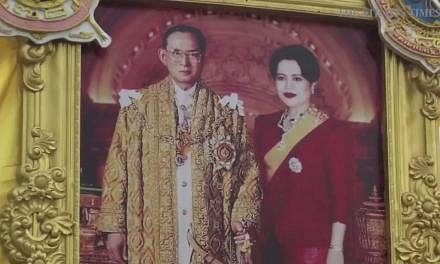Far from the fecund tropical streets of teeming Bangkok, in the early autumn chill of a Massachusetts evening they gathered.
Some stood wordlessly, some talked. Many hugged each other and wept. Strangers meeting for the first time spoke to each other like friends. Some held candles.
It was Thursday evening (Oct 13) in Boston, and this was King Bhumibol Adulyadej of Thailand Square, a couple of blocks from Harvard University.
The square is named after Thailand's now late King who was born in 1927 at Mount Auburn Hospital in Cambridge, just a short drive from here around the sweeping bend of the Charles river. Just hours earlier, the monarch had passed away in Bangkok at the age of 88.
Before he became a King, "he took his first baby steps in Brookline,'' the Boston Globe remembered.
King Bhumibol is most often referred to as a father figure. In Thailand, from the highest Bangkok penthouse to the lowest country shack, his picture hangs on the wall with faded dog-eared family portraits, sometimes of parents and grandparents as youngsters receiving their university degrees from his hands.
In some quarters it is easy, to the point of bordering on the fashionable, to be critical of the role and stature of the monarchy in Thailand, and the feeling for King Bhumibol which brought hundreds of thousands out on the streets in Bangkok on Friday, dressed in black and standing patiently in the heat for just a glimpse of his body as it was transported solemnly from Siriraj Hospital to lie in state at the ornate and bejewelled Grand Palace.
It is easy - especially if one comes from a background of liberal democracy - to be dismissive of the institution and its unique role in Thailand; to call it anachronistic, infused and surrounded as it is with pageantry, protocol and ritual at once spectacular and arcane, and inoculated against criticism by Thailand's lèse majesté law which mandates long jail terms for anyone deemed to have insulted the king, queen, heir or regent.
But this to some degree misses the point of why Thais from all walks of life are experiencing the kind of grief that leads them to weep in private and public, and to gather for at least a few moments or hours or days, even as strangers to one another, and even in a politically divided country, and even on the other side of the world on a cold evening in Massachusetts, united in grief.
Along with a small group of foreign journalists, I had an audience with King Bhumibol in 2008. I was there in my capacity as president of the Foreign Correspondents Club of Thailand (FCCT). We met a man whom we respectfully shook hands with, and who was happy to meet us and spoke with us for more than two hours in a voice so soft that at times I had to strain to hear.
It was an off-record conversation and he spoke freely about his love for music, about the environment and about his family. He spoke with humour at times, raising a laugh from us.
I was on crutches, having broken my leg in a motorcycle accident some months earlier. He inquired about my leg, with genuine concern.
In our group was Mr Denis Gray of The Associated Press, a veteran of the foreign press in Thailand. On Thursday in Japan Times, he too recalled that evening, writing: "Far from the often stilted, vague language of his public speeches, (King Bhumibol) punctuated his remarks with colourful anecdotes and jokes.''
"That evening was one of several times I glimpsed some of the contrasting sides of a complex personality, one that may never be fully plumbed.''
In 2008, King Bhumibol was 81 - just a couple of years older than my own father. When he spoke to us about the loss of old values, and of the conversion of forests to dams and golf courses, he even sounded like my own father.
Indeed it was easy for me, coming from an Asian society, to seamlessly feel respect and deference for him that comes naturally towards elders in Asian societies. It had little to do with the fact that he was also the King of Thailand.
In recent months as he lay in hospital, concern had been growing about the state of his health. On the throne for 70 years, he is the only King most Thais alive today have ever known. But there had been a reluctance to talk about his inevitable passing. Just weeks ago, I asked a Thai professor in Bangkok why this was so. He thought for just a second and then asked me: "Do you prepare for the death of your father?"
On Thursday, Ms Jasmine Chia, a 20-year-old Thai student at Harvard University, who was fresh from a discussion on the BBC on the death of King Bhumibol, posted on her Facebook page : "I understand the urge, especially among Western media, to begin discussing Thai politics by highlighting the complicated relationship the monarchy has had with democracy.''
"I understand the urge to marvel at the 'incredible' (read: eccentric) display of sadness, to lay down the corpse of a nation and to dissect the foundations of propaganda that have created what others can only understand as the 'myth' of our King.''
"But.. that's also incredibly patronizing. It's not as if Thais are incapable of critical thinking, of questioning our own political system. But today, just for one day, understand (the) deep, visceral sadness of realizing that a man who has always been a father to us can no longer hold us together. Understand that there is a time for objectivity, for critical thinking, but maybe now is not that time.''
"Yes, there is time to tear apart the institutions that have become fragile over time - believe me, it will happen and it will not be because of the 'developed' ideas imported by (the) virtuous West.''
"But just for one day, let us mourn the King we loved, and will love long after his death.''
The relationship with a parent, as any child or parent must know, is at once deep and complex. Parents are at once remote yet accessible, idealised and also - often painfully - accepted as flawed as any human.
I lost my own father a few years after that audience with the King. There is a hollow feeling at the loss of a parent, of the realisation that you are now really on your own.
With the passing of King Bhumibol, an entire country is now dealing with that loss.
